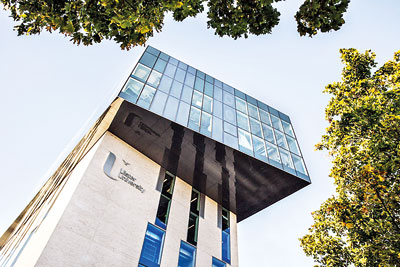How best to select an LL.B. Programme
View(s): Many decades ago those who aspired to acquire an LL. B degree locally had no choice.
Many decades ago those who aspired to acquire an LL. B degree locally had no choice.
There was only the University of Ceylon (later University of Colombo). The Law Department (later it got the status of a Faculty) had a distinguished array of academics such as the Professor T. Nadaraja, Dr. Raja Goonesekera, Dr. Mark Cooray, Professor C. F. Amerasinghe, Professor Savitri Goonesekera, Professor G. L. Peiris, Professor M. Sornarajah and Dr. Nirmala Chandrahasan, just to name a few.
The University of Ceylon then was one of the highly ranked universities amongst the erstwhile British colonies. Professor Ivor Jennings, who later became the Vice Chancellor of Cambridge University, was an influential figure who helped the Law Department in its formative years in his capacity as the Vice Chancellor of the University of Ceylon.
Today, the situation is very different. Several universities and private sector, educational institutions (some with degree granting status) offer programmes leading to the LL.B. Degree. Several foreign universities have joint partnerships or a franchise system to award the LL.B. Degree even though the students have entirely completed the programme here in Sri Lanka.
The Nawaloka College of Higher Studies (NCHS) and the Ulster University have launched a LL.B. programme of a different modality. Students spend two years studying the subjects basically taught at Ulster and after completing their examinations here are required to proceed to Belfast for the final year and will pass out with a full-fledged Ulster University LL.B. Degree.
Prospective students and their parents are often in a dilemma as to which LL.B. programme is the best. A number of considerations come into play in making a decision and in this article we will focus on a few of these considerations.
 Ranking of the University
Ranking of the University
Obviously, it carries more weight and credibility to earn a degree from a reputed university. On the other hand, if that university is chosen by many local students and unless one is confident of doing well enough to earn a class, he or she may have to compete with so many batch mates for the few jobs available. A degree from a university with a low ranking will not carry much prestige, even if the student has passed out with honours.
Scope of Subjects
In a competitive world, it is important that students get exposed to many subject-areas which are topical and of relevance to their professional careers. Websites of institutions with partner U.K. and Australian universities normally list the subjects that have to be studied during the three year period.
Optional Subjects
Only a few universities offer optional subjects during the third year. Students can thus choose those subjects which they think may be more relevant having regard to their future career plans.
Ratio of lecturers to students
Some universities have a deliberate policy of having a cap on the intake of students in a single batch so that the lecturer can pay special attention to student needs and sharpen their skills. It is unfortunate that in some local institutions students have to go to private tutors, something that rarely happens in the foreign partner universities. A few universities offering LL. B programme here plan to send their own staff for short periods of time, offering a different perspective based on their specialization and experience.
Location and Facilities
Given the traffic problems, students prefer institutions which are centrally located and which have facilities for lectures with ample space, good library resources, moot courts etc. Ambience and atmosphere are factors to be reckoned with. In fact, it has been said of Sir Ivor Jennings that he personally chose Peradeniya to locate the University of Ceylon because of the scenic beauty conducive to academic life and extra-curricular activities.
Assessment Methods
The value of a degree is measured by the rigours of the assessment methods. Though ‘purchasing a degree’ by money is an easy shortcut, such degrees are worthless in a competitive world where so many apply for limited job opportunities.
Employability
Some universities enjoy a high percentage of students who have secured jobs within a short period of time. Whilst it depends on the location and the area of specialization, universities with a broad spectrum of subjects make it easier for students to be flexible with regard to employment choices.
Cost
Local institutions more or less charge a similar fee. One is reminded of the old Chinese saying: ‘Good things are no cheap and cheap things no good.’ Many banks offer long-term loans to help students to finance their degrees. Moreover, universities offer bursaries and scholarships as well as opportunities to work for a limited number of hours per week.
Thus, the decision to select a university or institution for a LL.B. degree is not one to be taken lightly. It requires careful consideration of the information on the website and discussions with student counsellors.
-Dr. Dayanath Jayasuriya P. C.


